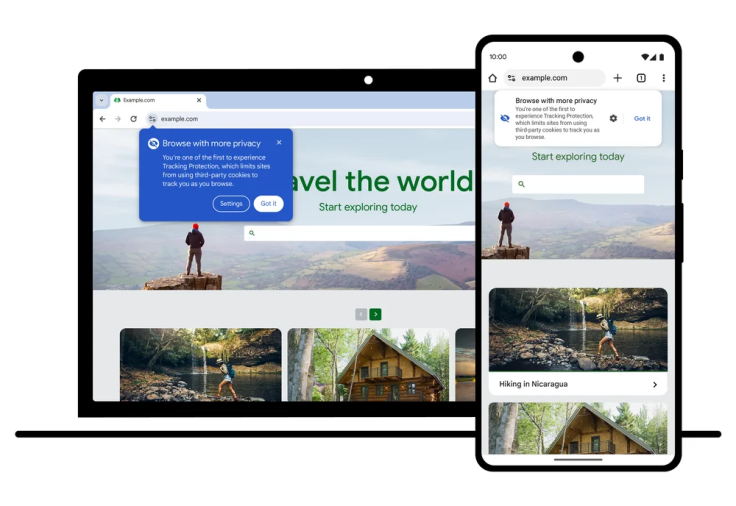After four years Apple did it, Google will soon start testing to block third-party cookies on its Chrome browser.

Starting Jan. 4, the search engine will start implementing its new Tracking Protection feature on 1% of Chrome users. Full implementation will roll out in the second half of 2024.
Google announced that the third-party cookie restriction will be set as default as part of its Privacy Sandbox initiative.
The tech giant said the decision was made to help "protect your data and provide more control over how it's used."
How Will the Third-Party Cookie Restriction Work on Chrome
Like in Firefox and Safari, Google will be limiting third-party sites and extensions' "ability to track you across different websites."
In the case that a site is not working without its digital cookies enabled, Google will notify users whether they want to temporarily remove the "Tracking Protection" on their browser.

Accessing other sites will automatically enable the third-party blocker.
Google assured that it will continue to work with businesses in providing tools and resources "so that high-quality content remains freely accessible."
Chrome users on computers and Android devices will be notified if they are chosen to be part of the test next year.
Google Clamps Down on Third-Party Cookies, Ad Blockers
The announcement of the third-party restrictions follows after Google wages its war against ad blockers.
Google earlier reported that it will also start testing new policies as to how many contents can be filtered by ad blocker extensions on the browser next year.
The search engine also admitted that it is slowing the playback retention of YouTube videos if it detected that the user is using ad blockers.
Software developers have already reached out to Google to smooth out plans to keep ad blockers on the platform ahead of the new Chrome engine in 2024.
In turn, Google already held dialogues with several prominent ad blocker developers. The extensions remain available on the Google Web Store as of writing.
Related Article : Google to Increase Limits on Ad Blockers Next Year









